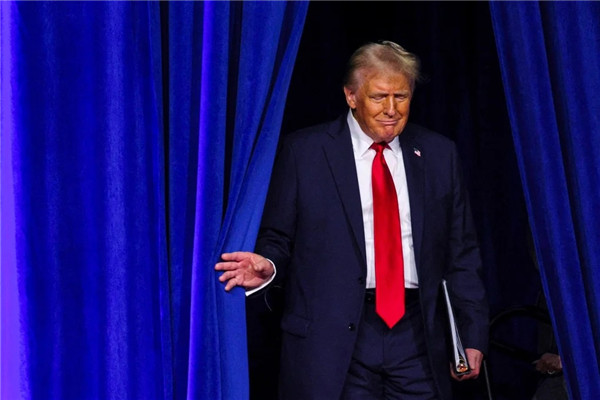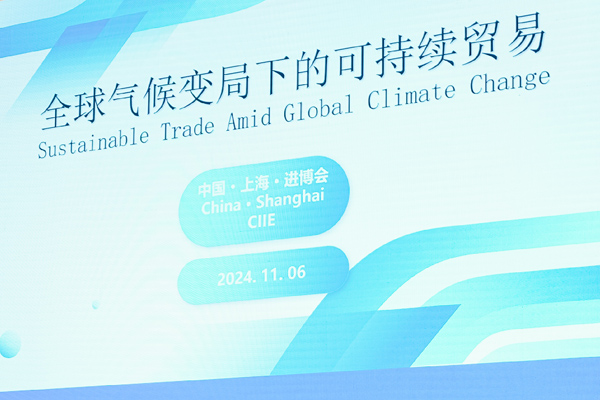Sino-Japanese business ties set to be boosted
December 24 , 2019
Government officials from both countries also emphasizing trade multilateralism
Business ties between China and Japan are expected to be further boosted and diversified via measures including jointly developed projects and high-tech cooperation, said officials and business leaders.
Many opportunities come from the two partners’ willingness to further enrich cooperative content and support multilateralism, as well as oppose protectionism and preserve the stability of the existing global economic order, said Wei Jianguo, vice-chairman of the China Center for International Economic Exchanges.
He predicted that trade between China and Japan will further grow in 2020 and business ties will continue to expand in areas such as service and finance.
Bilateral trade volume between China and Japan amounted to $285.86 billion between January and November, while China remained Japan’s largest trade partner, according to data from the General Administration of Customs.
In addition to importing precision instruments, new materials, electronic equipment and auto parts from Japan, China’s new round of opening-up will create more opportunities for Japanese businesses in healthcare, elderly care, banking and insurance, said Wang Huiyao, president of the Center for China and Globalization(CCG) in Beijing.
To better cope with the world’s economic uncertainties and consolidate coordination in global governance, the governments of both countries reached consensus on strengthening ties during a high-level economic dialogue in Beijing in April.
“There are new signs emerging in bilateral business ties, which conform to the fundamental interests of the two partners,” Wang added.
Attracted by China’s enormous consumer base, Japanese companies had invested a total of $113.7 billion in China by May this year, according to the Ministry of Commerce.
Tetsuro Homma, CEO for China and Northeast Asia of Panasonic Corp, said the group will strengthen its online efforts and expand inland sales in China in the long term, after building a strong market presence in the country’s coastal cities, especially in the Yangtze River Delta and Pearl River Delta regions.
Eager to gain more market share from the country’s ongoing industrial and consumer market upgrading, Panasonic established its regional branch for China and Northeast Asia with integrated research and development facilities, manufacturing and sales in April, mainly putting efforts into home appliances and fresh food supply chain businesses.
The Japanese executive noted that in comparison with other markets, the Chinese market is quicker to accept new technologies. High value-added home appliances account for a large proportion of the Chinese market.
Uniqlo, the Japanese clothing brand owned by Yamaguchi-headquartered Fast Retailing, will also raise its Chinese store number from 700-plus outlets this year to over 1,000 over the next three years, in particular in smaller cities.
The move comes on the back of Chinese consumers’ soaring demand, said Pan Ning, CEO of Uniqlo China, adding supported by around 40,000 employees in China, the company will use both physical and online channels to reach its goals.
“We will also adopt technologies to improve our digital operations, such as developing smartphone apps and websites so our products could connect digitally with consumers, especially at places where there are no brick-and-mortar stores,” Pan said.
Backed by their strong manufacturing and infrastructure development ability, experts added that China and Japan can also find new growth areas to develop markets in Asia, Africa and Latin America to meet their rising demand for industrialization and urbanization.
Ma Yu, a researcher at the Beijing-based Chinese Academy of International Trade and Economic Cooperation, stressed that the tangible development of the Belt and Road Initiative will help companies in both countries better deepen international capacity cooperation as they have already jointly developed a photovoltaic power station project in the United Arab Emirates and an energy project in Kazakhstan.
Companies from China and Japan signed more than 50 agreements in Beijing last October for cooperation in areas such as infrastructure and services to further develop third-party markets.
These deals also cover digital technology, healthcare, finance, regional development and manufacturing, according to officials from both sides. The two sides have already begun to work with the Thai government on a high-speed railway project in eastern Thailand, as well as smart city projects.






